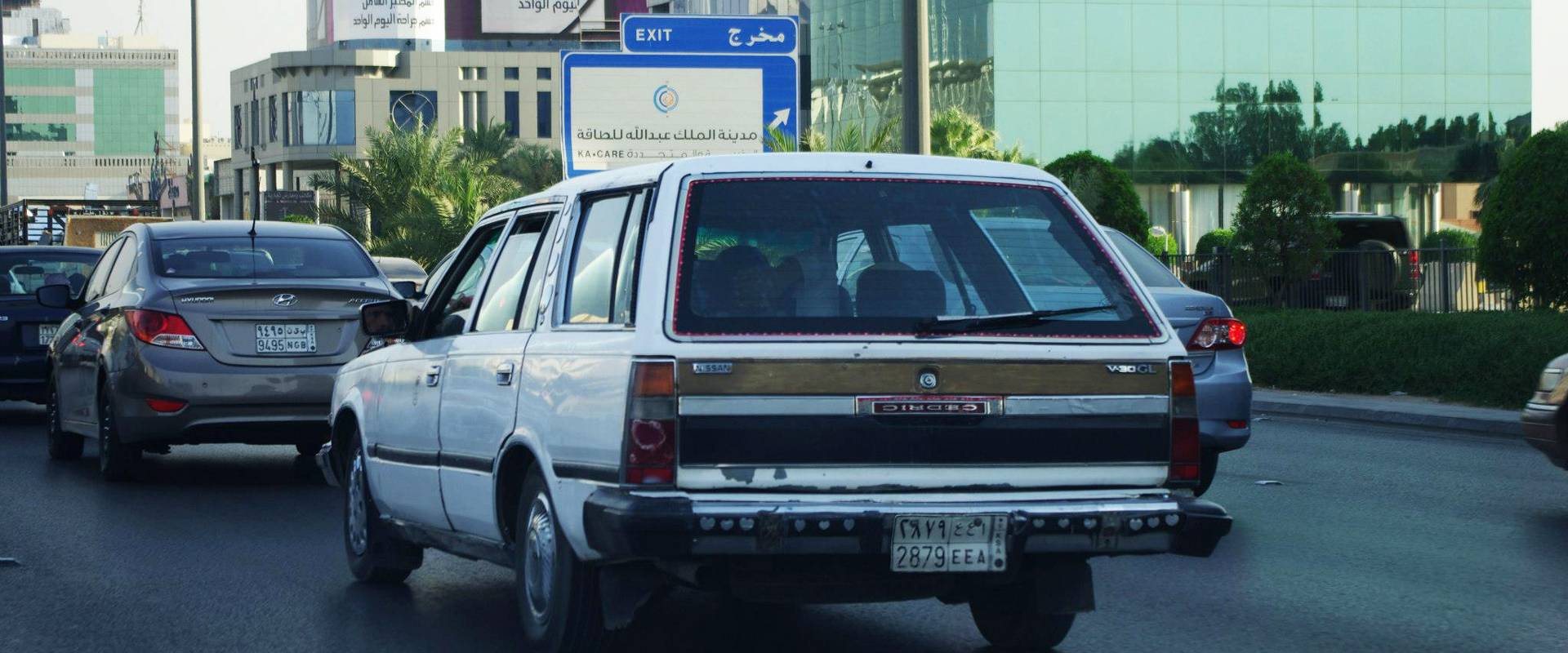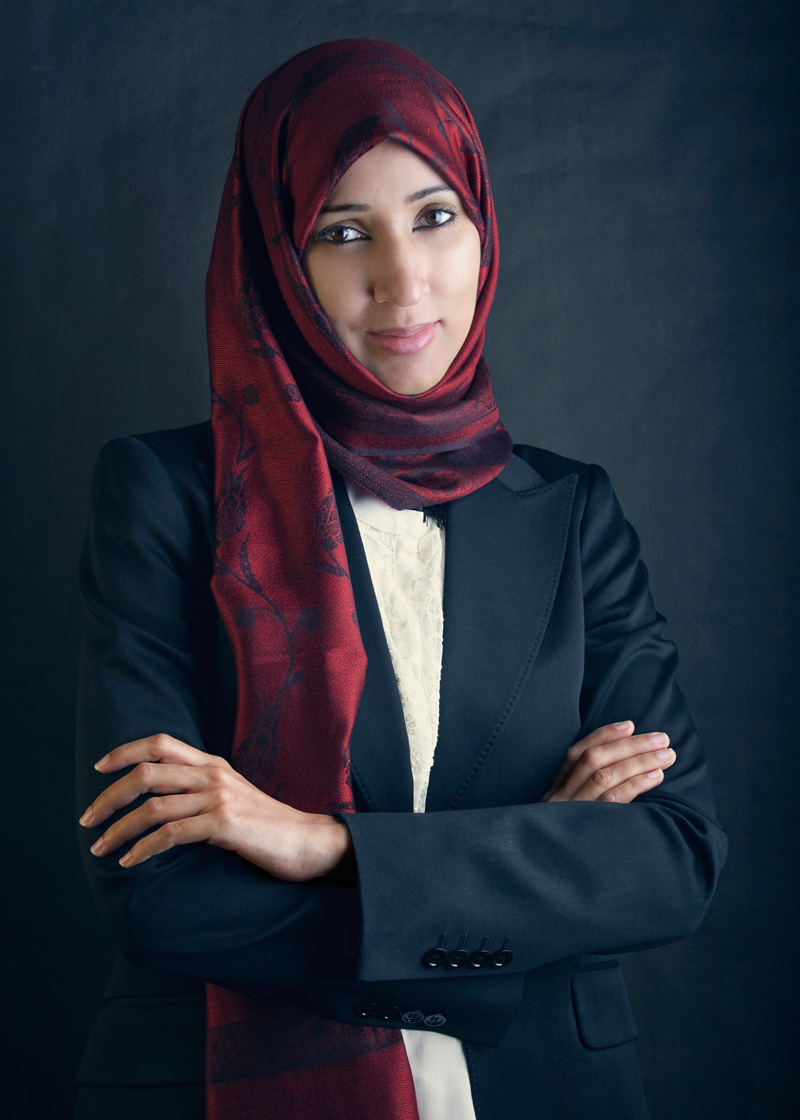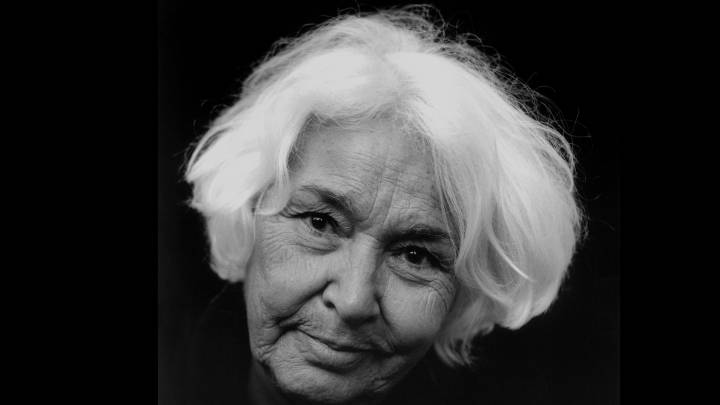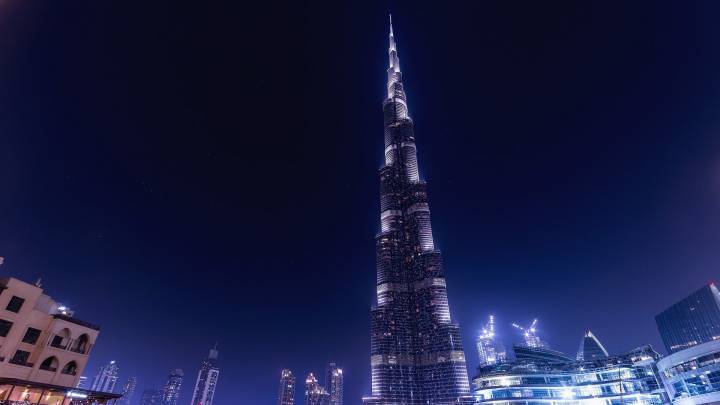An interview with Manal Al-Sharif, who was arrested in Saudi Arabia for daring to defie the kingdom’s edicts against female drivers, forcing her to flee the country of her birth.
An atmosphere of tension, anticipation and anger hung over the Saudi capital of Riyadh amidst the Gulf War. Kuwaiti mothers fleeing the war entered Saudi territory, children in one hand and the other hand on the steering wheel. Half a million US troops landed on the Arabian Peninsula to protect the Kingdom from the repercussions of the war. American female soldiers in charge of military tanks passed through the streets of Riyadh, in full view of all its citizens.
When I entered the main compound of Aramco and watched women, for the first time in my life, driving bicycles and vehicles in the streets, I asked my driver: ‘Are we outside Saudi Arabia or what?’ These scenes were enough to provoke the imagination of the female intellectual elite of the Najd region, the birthplace of Wahhabism, an ultra-conservative interpretation of Sunni Islam. “Why are these women allowed to drive in our country, while we are banned?” This question, posed during a cultural meeting, spurred a group of women in the city to take a stand, deciding that they would drive cars themselves, cars otherwise driven by chauffeurs or male relatives.
November 6, 1990, was the historic date when 47 Saudi women organised the country’s first car demonstration in protest of the ban against Saudi women driving. The historic campaign ended with the arrest of the participants and a subsequent campaign of public defamation, slander and social ostracism. The women faced a number of punishments; some lost their jobs, others were expelled from school. All passports were confiscated.
The Saudi authorities proved successful in cutting down the plant of the first Saudi women’s rights movement, but some of the roots remained alive. Twenty years after the November 6 demonstration, Saudi feminist and author Manal al-Sharif returned to water the seeds of that forgotten plant and renew the claim for the same right – this time during the heyday of the Arab Spring revolutions.
Al-Sharif urged women to join her Women2Drive campaign on June 17, 2011, using social media to advocate and reach her peers. She herself defied the ban by driving her brother’s car in Al-Khobar. She was stopped by traffic policemen and later imprisoned for nine days for violating the ban.
“I was interrogated about who was supporting me in my campaign, and if in fact the campaign was being organised and dictated by foreign entities,” she says with a sarcastic smile.
Six years after the terrible experience in prison, Manal Al-Sharif is an award-winning and well-known Saudi women’s rights activist. She has documented the events of 2011, which she calls the Saudi Women’s Spring, in her memoir Daring to Drive: A Saudi Woman’s Awakening, published this year by Simon & Schuster. The book contains the story of the inception of the Saudi women’s protests in the Kingdom of Men, which is what she calls her home country.
You want a statement here is one: "Saudi Arabia will never be the same again. The rain begins with a single drop" #Women2Drive ❤️
— منال مسعود الشريف (@manal_alsharif) September 26, 2017
“As a woman in Saudi Arabia, you have to co-exist with a long list of taboos,” Al-Sharif says as we sit in the lobby of a hotel next to her Dubai apartment.
But why live in Dubai? I ask her. “Because of my eldest son, Abdullah!”
When Manal married for the second time, she lost custody of Abdullah. According to Saudi law, the father is granted custody of the child in the event of divorce, unless he voluntarily gives up custody to the mother of the child.
“Abdullah’s father forbids my son from visiting me abroad. For this reason I chose to live in a neighbouring country, so that I am able to visit my son.”
More than two years have passed since the birth of Daniel (Manal’s son with her Brazilian husband), but her two children have never met: as a Brazilian national Daniel has no right to enter Saudi Arabia, and 12-year-old Abdullah is not allowed to travel to see his mother.
“Imagine, Saudi Arabia is only an hour away from Dubai, but my children have never met each other.”
Manal feels torn by the reality of her children. She sighs and insists that she did not wish to leave the kingdom; she believes change must be made from within. But Saudi law left her with no choice but to leave. For these painful reasons, Dubai has become her safe harbour and her place of exile. [Manal has since moved to Australia.]
Manal begins talking about life as a woman in Saudi Arabia by recalling her studies at King Abdulaziz University in Jeddah (about 45 minutes from Mecca). She describes her time there as disappointing, since the specialties open to female students were limited to a select number of scientific disciplines. She hoped to study nuclear physics, but this was not available to female students in public universities; neither were degrees in TV journalism or architecture.
During her first year in university, Al-Sharif discovered the Department of Computer Science by chance and reluctantly chose to enlist. She is now grateful that she entered the world of computers, as it paved the way for freedom. “The Internet became the safe space where I could raise questions of an existential or social nature, hiding behind pseudonyms.”
One time, Manal typed the question: “Why does the Lord forbid us from listening to music, when nature is in itself a symphony of creation?” It sparked a fierce debate on local Saudi Internet forums between those who accused her of lacking in faith and those who applauded her courage to challenge religious discourse. “I have often been accused of heresy, just because I dare to question social and religious rules shackling Muslim women.”
Manal feels grateful for having found the Internet at an early age, since the network gave her the opportunity to dive into diverse and tolerant views. She says it may even have saved her from becoming a terrorist.
She clarifies: “I have always loved to read, but the only books available to me when I was young were mainly free books distributed by religious extremists. These books were full of fanatical ideas such as prohibiting music.”
In addition, like all other students at public schools, she went through 12 years of mandatory religious subjects such as Monotheism, Jurisprudence and Quran Studies. Manal explains that the combination of the free books and indoctrination at school turned her into a religious fanatic, to the extent that she destroyed the music tapes of her two siblings, tore down all her drawings and burned fashion magazines that contained pictures of unveiled women.
“I was exposed to massive religious indoctrination that obliged me as a Muslim to fight against evil.” Music, painting and the female body, according to Saudi religious discourse, were dangerous sins that could sway people from the right path and lead them to damnation. When Manal burned, ripped and smashed – without the knowledge of her family – she thought she was protecting herself and her family from invoking the wrath and punishment of the Lord. “I was the victim of a rigid educational system that wanted to kill all my creativity and leave me full of fear.”
After graduating from university in 2002, Manal got the chance to work as an information security engineer at Saudi Aramco, the world’s largest oil company, in the Eastern Province of Saudi Arabia. Manal was shocked when she visited the Aramco residential complex, which is separate and isolated from Saudi society and its strict laws.
“When I entered the main compound of Aramco and watched women, for the first time in my life, driving bicycles and vehicles in the streets, I asked my driver: ‘Are we outside Saudi Arabia or what?’" she laughs.
This was not the only contradiction Manal witnessed. During her arrest in 2011, she was forced to sign a pledge not to drive a car in Saudi Arabia as a condition of her release, yet she could continue to drive without repercussions while inside the walls and premises of the Aramco residential compound, where residents enjoy rights not available to the rest of the country.
In spite of all the difficulties and hardship Manal experienced following her divorce from the father of her eldest son, love bloomed between her and a Brazilian colleague. When the crises connected to her divorce seemed to have passed, they decided to marry. However, officials at the Saudi Ministry of Interior did their best to spoil her joy, refusing to give her the special permission needed to marry foreigners.
This made their relationship illegal under Saudi law, and in the end the couple was forced to leave the country and settle in neighbouring Dubai. However, Manal emphasises that the decision to leave was not only because of the marriage: “I found it very difficult to stay in Saudi Arabia because of the amount of social ostracism I was subjected to.”
Sometimes she was accused of betraying her country, and other times she was accused of being funded by European embassies. It went so far that her son Abdullah was beaten in school by children who discovered that he was the son of a ‘bad’ woman who would surely go to hell for having encouraged other women to drive cars.
“Saudi society is based on a culture of the herd. If a member of the herd tries to claim its basic rights, it will be immediately exposed to a campaign of public shaming, turning it into a social outcast.” The fear of social rejection deprives many people of the courage to ask questions and push for change, she says.
Hours before our conversation, Manal participated in the annual meeting of a campaign aimed at ending the male guardian system in Saudi Arabia. This system forces women in the country to be entirely dependent upon male relatives – husband, brother or even teenage son – and to seek their consent to enrol in education, travel abroad or get a passport.
A group of Saudi women gathered in Dubai to plan the campaign this year. Manal is filled with joy at meeting Saudi women from different parts of the Kingdom to discuss the best ways to claim their rights as citizens. She points to the ‘I Am My Own Guardian’ plastic bracelet on her wrist, produced by the women’s rights activists as part of their campaign, and takes a picture for Twitter, where she has thousands of followers.
The weather in Dubai is very hot – 38 degrees Celsius. Manal is wearing a short summer dress that reveals her legs and arms. I ask if I can take a picture of her. She immediately refuses. “If the picture were to spread on the Internet, religious clerics would use it to alienate other members of Saudi society from me.”
Her answer explains why she wears a hijab on the cover of her book. “I want to be able to reach all parts of society, so it is important for me to appear publicly in a manner that is acceptable to all members of society, especially those that disagree with me, so I do not lose the opportunity to address them.”
Manal’s biggest challenge right now is to find a job. “I have applied to 47 job openings, and not one of them has been willing to hire me.” She says she faces a campaign aimed at making her life hell, but she insists on continuing the struggle. She refuses to live in a society with a system of discrimination similar to that which once existed in the United States.
“If you compare the situation of Saudi women today with the situation of African-Americans 50-60 years ago, you will find a great number of similarities.”
Hana Al-Khamri is a freelance journalist and analyst. She grew up in and worked as a journalist in the Kingdom of Saudi Arabia. She is currently based in Sweden.





